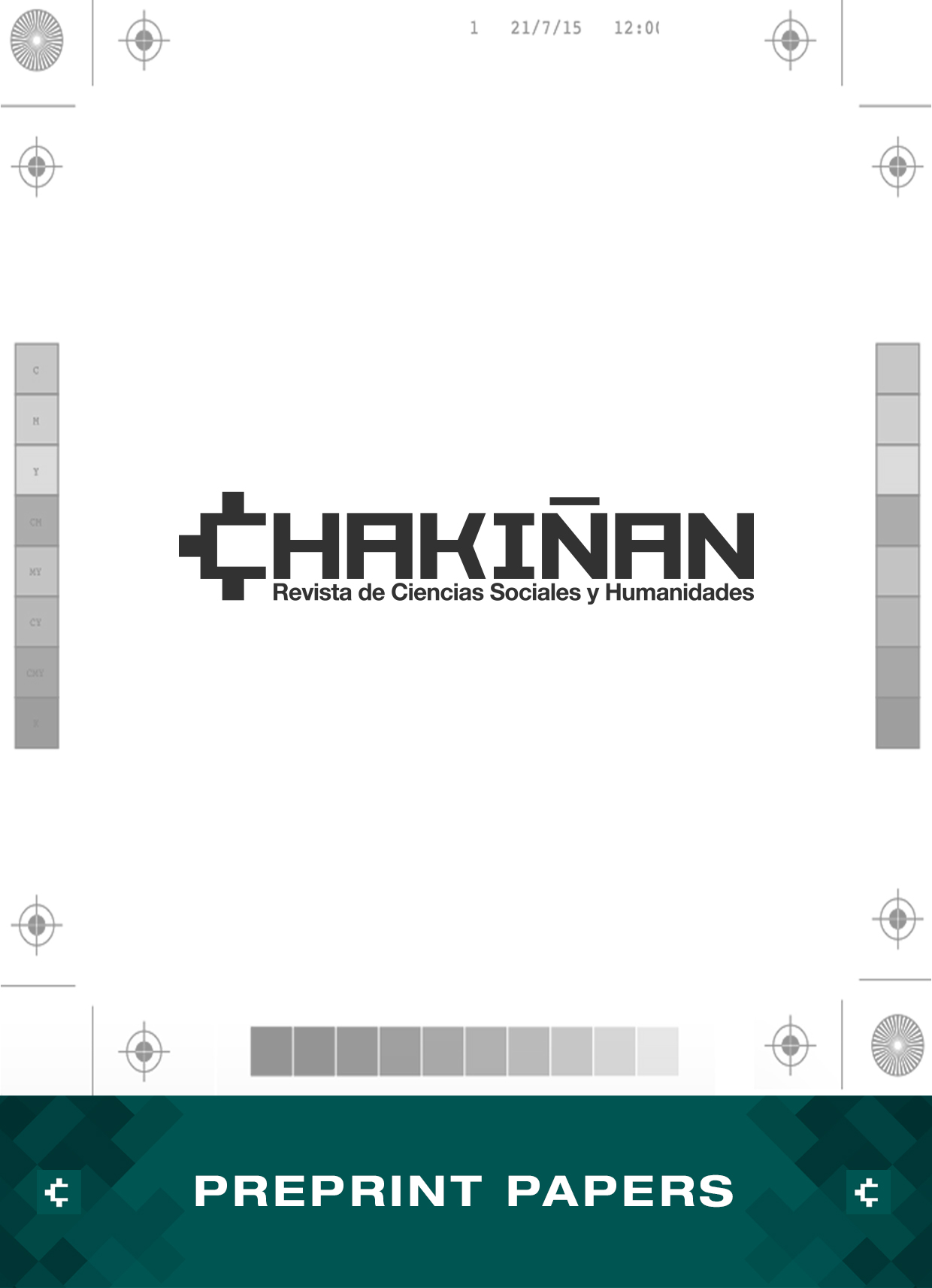STEAM MODEL AS AN INNOVATIVE PEDAGOGICAL APPROACH IN EARLY CHILDHOOD EDUCATION IN ECUADOR
Main Article Content
Abstract
The significance of this study lies in addressing the need to innovate pedagogical practices in Early Childhood Education in Ecuador. This innovation is proposed through the integration of the Science, Technology, Engineering, Arts, and Mathematics (STEAM) educational model to enhance the holistic development of children. The objective of this review was to compile information from research studies on the implementation of the STEAM model across various educational levels, with the purpose of identifying successful processes and existing challenges in South America, particularly concerning perceptions of applied sciences. The Search, Appraisal, Synthesis, and Analysis (SALSA) method was employed. This enabled an in-depth exploration of updated literature. This study was adhered to a qualitative paradigm, which utilized techniques for document analysis and information synthesis. Research published in the WoS and Scopus databases was selected for analysis. The main result indicates that STEAM-related challenges can become opportunities. For this to happen, the State and educators must acknowledge the critical importance of continuous epistemological and scientific training.
Downloads
Article Details
Conference Proceedings Volume
Section

This work is licensed under a Creative Commons Attribution-NonCommercial 4.0 International License.
Responsibility of the authors:
The authors are responsible for the ideas and data collected in the manuscripts. They are additionally accountable for the fidelity of the information, the correction of the citations, the right to publish any material included in the text, and the presentation of the manuscript in the format required by the Journal (WORD template). A manuscript forwarded to CHAKIÑAN must not have been published before, nor must it have been submitted to another means of publication.
Copyright:
Published articles do not necessarily compromise the viewpoint of the CHAKIÑAN JOURNAL. The Journal is aligned to the policy of the licence de Creative Commons Reconocimiento-No comercial 4.0 Internacional (CC BY-NC 4.0). Each author retains the right to the paper published in the Chakiñan journal.
Privacy statement
The personal data and email addresses entered in this magazine will be used exclusively for the purposes stated by the publication and will not be available for any other purpose or person.
How to Cite
Share
References
Arias, E. (14 de diciembre de 2023). PISA 2022: ¿Cómo le fue a América Latina y el Caribe? Enfoque Educación. https://n9.cl/lal6u
Cardona, H. L., & Rodríguez, N. (2021). Enfoque STEAM. Una posibilidad para la formación de maestros en Educación Infantil. Universidad Pedagógica Nacional.
Castro-Zubizarreta, A., García-Lastra, M., & Meng, O. (2024). Enfoque STEAM y Educación Infantil: una revisión sistemática de la literatura. Ensayos, 39(1), 16-34. https://n9.cl/gn8g2
Curiel, P. (2019). Experimentos dentro del aula de Educación Infantil para desarrollar las Ciencias Sociales y las vocaciones STEAM. Universidad de Valladolid. https://n9.cl/0vive
Diez, M. Izquierdo, F., & Adúriz, A. (2018). Proyectos STEAM para la Educación Primaria: fundamentos y aplicaciones. Dextra Editorial.
Espinosa, P. (2024). Evaluación de programas de educación STEM en diferentes niveles educativos. Nexus, 3(1), 54-64. https://doi.org/10.62943/nrj.v3n1.2024.81
García, O., Raposo, M., & Martínez, M. E. (2023). El enfoque educativo STEAM: una revisión de la literatura. Revista Complutense de Educación, 34(1), 191-202. https://dx.doi.org/10.5209/rced.77261
Gardner, H. (2001). La Inteligencia Reformulada; las Inteligencias Múltiples en el Siglo XXI. Paidós. https://n9.cl/fkbtx
Grupo interacadémico ANCiU, ANIU, ANM. (2022). La educación STEM en Uruguay: Desafío de todos. Relevamiento.
INEVAL. (16 de abril de 2024). Ecuador se prepara para la evaluación internacional PISA 2025. https://n9.cl/ak8kw
Landín, N. (8 de marzo de 2024). Warmi Stem: la iniciativa que impulsa el empoderamiento y educación de mujeres indígenas en Ecuador. Vistazo. https://n9.cl/sq3ub
López, D. L. (2021). Tendencias y desafíos de los sistemas educativos para el siglo XXI. Dialogus, (7), 63-72. https://doi.org/10.37594/dialogus.v1i7.301
Marín-Ríos, A., Cano-Villa, J., & Mazo-Castañeda, A. (2023). Apropiación de la educación STEM/STEAM en Colombia: una revisión a la producción de trabajos de grado. Revista Científica, 47(2), 55-70. https://doi.org/10.14483/23448350.20473
Ministerio de Educación MINEDUC. (2014). Currículo de Educación Inicial. https://n9.cl/47zr
Moreno, N., & Bautista, N. (2019). La educación STEM/STEAM como alternativa para las reformas educativas: una aproximación a su estado del arte desde la perspectiva filosófica. En N. Moreno (comp.), Educación STEM/STEAM: Apuestas hacia la formación, impacto y proyección de seres críticos (pp. 13-26). Editorial Artes y Letras S. A. S. https://n9.cl/qss9e
Núñez, J., Vázquez, A. E., & Vázquez, R. A. (2022). ¿Cómo explicarían los autores la Educación STEM/STEAM a alumnos de Secundaria y Bachillerato? Unión. Revista Iberoamericana de Educación Matemática, 18(66), 1-20. https://n9.cl/cwnvie
OECD. (2023). PISA 2022 Results (Volume I) The State of Learning and Equity in Education. OECD Publishing.
Pineda, D. Y. (2023). Enfoque STEAM: retos y oportunidades para los docentes. Revista Internacional de Pedagogía e Innovación Educativa, 3(1), 229-244. https://doi.org/10.51660/ripie.v3i1.115
Romero, A. M., & Diaz, G. (2022). Diseño de una metodología maker-steam para el desarrollo de habilidades digitales, tecnológicas y de pensamiento lógico en educación inicial. En E. Serna (ed.) Revolución Educativa en la Nueva Era, II (pp. 681-689). Editorial Instituto Antioqueño de Investigación. https://n9.cl/fhznz
Ríos, N. M. (2022). Competencias STEAM, una perspectiva de implementación en Paraguay. Revista Científica Multidisciplinar, 2(1), 7-10. https://n9.cl/9h3fu
Secretaría de Educación y Empleo. (3 de julio de 2023). Educación STEAM. https://n9.cl/uu91qe
Silva-Hormazábal, M., & Alsina, Á. (2023). Promoviendo el desarrollo profesional docente en STEAM: diseño y validación de un programa de formación. Revista de Estudios y Experiencias en Educación, 22(50), 99-120. http://dx.doi.org/10.21703/rexe.v22i50.1986
Tovar, D. L. (2019). Educación STEM en la Sudamérica hispanohablante. Lat. Am. J. Phys. Educ., 13(03), 1-7. https://n9.cl/4uc4h6
UNESCO. (20 de abril de 2023). Necesaria la educación STEAM+H para cultivar un pensamiento y habilidades transformadoras, innovadoras y creativas para avanzar hacia un desarrollo sostenible. https://n9.cl/4qaj1
Vélez, C. E., & Zambrano, L. C. (2018). Diseño curricular de la carrera de Educación Inicial: hacia la interdisciplinariedad e integración de saberes. Revista San Gregorio, 1(28), 16-25. https://n9.cl/ev42h


